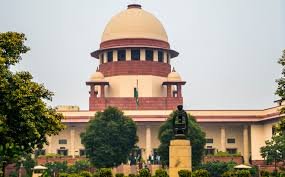Two years after a woman, her child, and a neighbor were torched in an ambulance during Manipur’s ethnic violence, there are still no arrests—raising troubling questions about the impartiality of justice in the conflict-torn state.
BY Navin Upadhyay
In a state torn apart by more than two years of ethnic strife, the pursuit of justice in Manipur is beginning to look disturbingly selective.
This contrast became even more glaring today, when the National Investigation Agency (NIA) arrested Thangminlen Hmar, the alleged mastermind behind the Jiribam massacre, from Assam. Hmar is accused of orchestrating the brutal murder of six Meitei civilians—including a 10-month-old infant—abducted from a relief camp and found dead in the Barak River in November 2024.
No one would question the need to bring such a man to justice. But Hmar’s arrest also reopens uncomfortable questions about other unsolved atrocities, especially the horrific Imphal ambulance lynching, in which a young child, his mother, and their neighbor were burned alive in June 2023—a case that has seen no arrests, no public accountability, and almost complete silence from investigators for over two years.
Jiribam: Justice on the Fast Track
NIA Nabs Prime accused in Jiribam Massacre of Six Meiteis#JiribamMassacre #ManipurViolence#JusticeForVictims #NIAArrest#ImphalKillings #ManipurConflict#EthnicViolence #NIAInvestigation https://t.co/7j81OBwiT1
— POWER CORRIDORS (@power_corridors) July 31, 2025
The Jiribam case was nothing short of chilling. In November 2024, six Meiteis—including three women and two children—were abducted from a relief camp. Four days later, their bodies were recovered from the Barak River, showing signs of torture and gunshot wounds. The violence sparked outrage across the Valley, massive protests, and a torrent of political condemnation.
READ: Two Convicted in Separate Imphal Valley Rape Cases
The NIA was brought in within days. The Manipur High Court fast-tracked the probe and, on July 27, 2025, directed the agency to file a chargesheet within 30 days. Within two days , Hmar—allegedly a key conspirator—was arrested in Cachar, Assam. The case is moving forward at high speed, with authorities pledging more arrests and forensic breakthroughs in the coming weeks.
Imphal: A Family Burned Alive and Forgotten
Worst Form of Inhumanity
On 4 June, a seven-year-old boy named Tonsing Hangsing, son to a Kuki father and a Meitei mother, who was injured by a bullet, was burnt alive in Imphal, Manipur. #Manipur #ManipurViolence #KukiZo #HumanRights pic.twitter.com/WzDqTJwvmx
— তন্ময় l T͞anmoy l (@tanmoyofc) September 29, 2023
Now contrast this with the burnt ambulance case of June 21, 2023—one of the earliest and most horrifying episodes of mob violence during the Manipur conflict.
That morning, Meena Hangsing, a Meitei woman married to a Kuki man, was fleeing escalating violence in her neighborhood, Khurai Thangjam Leikai, along with her seven-year-old son, Tongsing. Fearing for their lives, their Meitei neighbor, Lydia Lourembam, offered to help. The three boarded an ambulance, seeking refuge elsewhere in the Valley.
But at Iroisemba, the ambulance was stopped by a mob.
The assailants interrogated the passengers, accused Meena of being Kuki, and then torched the ambulance with all three inside. Lydia’s husband, who was also in the vehicle, barely escaped with severe burns.
READ: Patna Horror: AIIMS Nurse, Two Children Burnt Alive
Videos of the burning ambulance and the chaos that followed were widely circulated. Public outrage peaked—but faded just as quickly. A CBI probe was ordered in August 2023, yet as of July 2025, there have been no arrests, no named suspects, and no charges filed.
Same State, Different Justice
Why has one case moved swiftly through the legal system while the other has languished?
Legal observers and human rights activists point to the disturbing role of identity politics in shaping state response. In the Jiribam case, the victims were Meitei civilians—well-defined, mourned collectively, and politically rallied behind. In the ambulance case, the identities were messier.
While the Jiribam case is being actively pursued in court—with progress reports, witness testimonies, and high-level arrests—the burnt ambulance case has disappeared into a bureaucratic black hole.
RTI queries filed by activists have yielded vague, non-committal replies. No chargesheet, no public update, no recognition for the dead.
For the Hangsing and Lourembam families, the lack of justice deepens the trauma.
Manipur is a state where every investigation carries political, ethnic, and emotional weight. In such a volatile environment, selective justice isn’t just unjust—it’s dangerous.
When the state fast-tracks justice for some victims but turns a blind eye to others, it sends a chilling message: that the law bends to majoritarian sentiment, and some lives matter more than others.
With over 60,000 people displaced and more than 260 killed since the conflict began in May 2023, true peace in Manipur will not come from silence or political convenience. It will come from equal justice—administered impartially, regardless of who the victim was.
As Manipur leaves behind yet another painful anniversary of this conflict, one truth is clearer than ever: There can be no healing without accountability. And no peace without justice—for all.
READ: Raped, Burnt, and Buried — Is Dharmasthala Hiding a Scandal That Could Shock the World?














